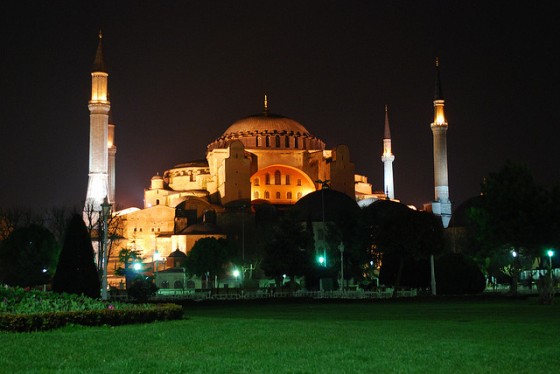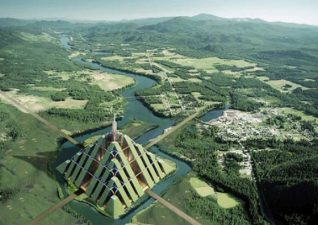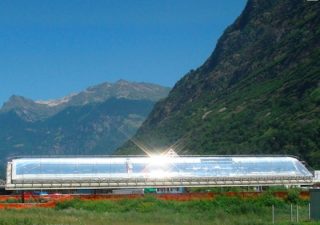 As the Muslim world marks the Islamic new year, Arwa reflects on the past 12 months of environmental action (and inaction) in the Middle East
As the Muslim world marks the Islamic new year, Arwa reflects on the past 12 months of environmental action (and inaction) in the Middle East
Believe it or not, this busy week saw the start of the Islamic new year of 1432 A.H. Unlike the typical new year celebrations with parties, fireworks and new year countdown, the Islamic holiday is a pretty low-key event. Public celebrations are minimal and the event is mainly marked with private contemplation, prayer and reflection on the year that’s passed.
The Muslim calendar marks the hijrah, or pilgrimage, of the Prophet Muhammad (pbuh) from Mecca to Medina to escape religious persecution in 622AD which is why the Islamic year has the suffix A.H. (After Hijra). So in the true spirit of the Islamic new year, I want to look back on the year that’s gone and also consider whether the Middle East’s hijrah- or migration- towards a more sustainable future is on the right path.
Balloons, Bin Laden and ‘Not-so-green’ Buildings
There’s no denying that the Middle East’s environmental record this year has been pretty mixed- there has been some great progress but also some true green-washing horror stories. Let’s start with the disasters. The year was off to bad start due to the complete failure to secure afair and effective climate deal at the Copenhagen Summit but that didn’t stop the Middle East from adding to the problems. Green Prophet reporters have done a great job following the Masdar project farce in Dubai which is far too expensive to be considered a model of sustainable construction. And who could forget the misguided Green approach Syrian celebrities took in promoting environmentally-responsible behaviour by releasing balloons in Damascus or Bin Laden’s bizarre foray into the environmental arena.
The UAE’s biggest water theme park built around the global warming theme also hit the green-washing headlines as it failed to acknowledge the hypocrisy of building a water park in such a water scarce region. This year also saw further devastation of the River Jordan, Red Sea Oil spill, the Carmel fire as well as rising concerns about the impact climate change will have on the region.
Praying For Rain, Reform and Regional Co-operation
As one of the biggest threats facing the region, water security has been an issue we’ve been unable to ignore. Green Prophet interviewed Gidon Bromberg, the Israeli Director of Friends of the Earth Middle East who spoke of the need for “regional cooperation… to more fairly allocate shared water sources” as well as the Prince of Jordan on the severity of the issue. There was also a greater realization of the urgency of the issue of water scarcity from Muslim countries with Tunisian president Zine El Abidine Ben Ali added that resolving this issues was one of the ‘most important duties’ of our time. In fact with Jordanians praying for rain and Syrians fleeing drought-stricken zones, it seems this realization has come a little too late.
Morocco took a big leap by creating an Environmental Charter this year (although they went on to arrest an environmental activist exposing illegal logging) whilst Egypt took steps towards eco-tourism in Sharm el-Sheikh. We have also reported on the growing influence of the Lebanese eco organisation IndyACT and Green Prophet has been advising people on how to green their Passover, to eat well, how to recycle/upcycle and get around in (green) style.
The Islamic world also seems to be making progress (as the eco-Islam editor I may be a little biased here!) with a celebrated Green Sheikh, the aptly ‘Mekkah Metro’, Green Ramadan as well as the rise of eco-mosques in the UK, the US and Turkey.
So are we on the right path? Well, it feels like the Middle East is slowly (and finally) recognising the real implications that climate change could have on them and why they have a vested interest in taking effective action now. Although it can sometimes feels like there is a lot of talk and little action, talking is part of the process of understanding the problem and what can be done. Hopefully as the impacts of global warming become more apparent, which they are, the region will be pushed into taking collaborative and effective action to create a more sustainable future.
Wishing all Green Prophet readers a happy and productive new year!
See more on climate change in MENA:
Arab World and Med Region More Vulnerable to Climate Change
Is the Middle East taking Climate Change Seriously?
Rehabilitate and Detox Your Lifestyle in Time for the New Year
Image via by Ivan Mlinaric on Flickr.




The Middle East will soon erupt and fulfil the Psalms 83 prophecy. I read an article on http://howlongolord.com/?p=285 . It is surprising how the events are tracking the list of nations in Psalms 83. There will be a unified overthrow of all of the moderate Islamic nations. Watch out Jordan, and Saudi Arabia your next on the list. The Middle East will be less green after the wars.